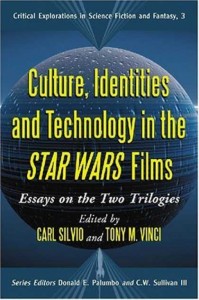 Star Wars: The Empire Strikes Back recently celebrated its 30th anniversary. With it came a lot of television programming related to the Star Wars series of films, and one included commentary from the editors and contributors to Culture, Identities and Technology in the Star Wars Films: Essays on the Two Trilogies (Critical Explorations in Science Fiction and Fantasy), edited by Carl Silvio and Toni Vinci (McFarland and Company, 2007). My interest in this volume was peaked by the cultural approach to the subject. Silvio and Vinci have made time in their schedules to discuss the book and what we might learn about Star Wars through the lens of cultural studies. Tony M. Vinci is an instructor of English at Monroe Community College, and Carl Silvio is an assistant professor of English at Monroe Community College in Rochester, New York.
Star Wars: The Empire Strikes Back recently celebrated its 30th anniversary. With it came a lot of television programming related to the Star Wars series of films, and one included commentary from the editors and contributors to Culture, Identities and Technology in the Star Wars Films: Essays on the Two Trilogies (Critical Explorations in Science Fiction and Fantasy), edited by Carl Silvio and Toni Vinci (McFarland and Company, 2007). My interest in this volume was peaked by the cultural approach to the subject. Silvio and Vinci have made time in their schedules to discuss the book and what we might learn about Star Wars through the lens of cultural studies. Tony M. Vinci is an instructor of English at Monroe Community College, and Carl Silvio is an assistant professor of English at Monroe Community College in Rochester, New York.
TheoFantastique: Carl and Tony, thank you for your willingness to discuss your book. I discovered your work on The History Channel while watching Star Wars – The Legacy Revealed. This program focused largely on the mythic aspects of Star Wars, particularly through the interpretive lenses of Joseph Campbell. Why has so much of the exploration of Star Wars been from the perspective of myth?
Carl Silvio: It all goes back to the publication of Andrew Gordon’s seminal article, “Star Wars: A Myth for Our Time,” in 1978. That essay had a tremendous influence on the future of Star Wars scholarship. George Lucas has also claimed that Joseph Campbell’s conception of the monomyth influenced him in the creation of the Star Wars saga. These two factors are probably the most significant reason why Star Wars and mythology/myth criticism have been so strongly associated with each other.
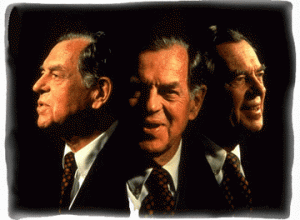 Tony Vinci: Andrew Gordon published his article, “Star Wars: A Myth for our Time,” in 1978. In it, he argues that Star Wars is more than childish entertainment, as many of his contemporaries contended. In order to validate this claim, he utilizes Campbell’s notion of the monomyth to explicate the significance of the film’s plot and characters by pin-pointing step-by-step how Star Wars follows Campbell’s thesis of The Hero with A Thousand Faces. Ultimately, he attempts to position Star Wars as myth. Add this publication to the fact that Lucas himself has been rather open about his interest in Campbell’s monomyth, and I do not find it that surprising that myth criticism has been such a prevalent mode of analyzing Star Wars. What I do find surprising, is that for almost three decades, it has been the dominant mode of analysis applied to the films, despite the dominance of cultural criticism applied to other speculative fiction texts in those decades.
Tony Vinci: Andrew Gordon published his article, “Star Wars: A Myth for our Time,” in 1978. In it, he argues that Star Wars is more than childish entertainment, as many of his contemporaries contended. In order to validate this claim, he utilizes Campbell’s notion of the monomyth to explicate the significance of the film’s plot and characters by pin-pointing step-by-step how Star Wars follows Campbell’s thesis of The Hero with A Thousand Faces. Ultimately, he attempts to position Star Wars as myth. Add this publication to the fact that Lucas himself has been rather open about his interest in Campbell’s monomyth, and I do not find it that surprising that myth criticism has been such a prevalent mode of analyzing Star Wars. What I do find surprising, is that for almost three decades, it has been the dominant mode of analysis applied to the films, despite the dominance of cultural criticism applied to other speculative fiction texts in those decades.
TheoFantastique: But in the face of mythic perspectives on Star Wars your book takes a very different approach as you look at the significance of cultural studies. Can you describe your book’s approach and why you think it is helpful in understanding the significance of Star Wars?
Tony Vinci: The Star Wars films are laden with cultural representations of race, gender, economics, and spirituality; they fetishize technology and fashion; they use the most cutting edge film-making techniques—yet they are presented as simple pieces of entertainment without much social or political commentary. This paradox of a wildly complex matrix of competing representations delivered as a simple commodity is what makes the franchise such a significant cite for cultural criticism. Our hope was to analyze how the films influence and reflect the cultures that created and view them in hopes that we will understand more clearly how they function as pieces of cultural meaning.
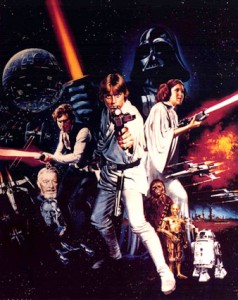 Carl Silvio: We have nothing against myth criticism per se. But the analytical work on Star Wars has been so dominated by it that other critical perspectives have been crowded out. All too often, myth criticism becomes a kind of intellectual cul de sac. Let’s set aside for the moment the question of whether or not the monomyth actually exists independently from the perspective of critics bent on finding it everywhere. How many times can we observe and point out how this or that narrative corresponds and conforms to the monomyth template? Moreover, once such a correspondence has been demonstrated, where does that take us beyond affirming over and over again that the monomyth pattern seems to repeat itself in a wide variety of cultural narratives? For me, it’s just so much more interesting to look at Star Wars from other perspectives, to see it as a rich repository of ideology and cultural values.
Carl Silvio: We have nothing against myth criticism per se. But the analytical work on Star Wars has been so dominated by it that other critical perspectives have been crowded out. All too often, myth criticism becomes a kind of intellectual cul de sac. Let’s set aside for the moment the question of whether or not the monomyth actually exists independently from the perspective of critics bent on finding it everywhere. How many times can we observe and point out how this or that narrative corresponds and conforms to the monomyth template? Moreover, once such a correspondence has been demonstrated, where does that take us beyond affirming over and over again that the monomyth pattern seems to repeat itself in a wide variety of cultural narratives? For me, it’s just so much more interesting to look at Star Wars from other perspectives, to see it as a rich repository of ideology and cultural values.
TheoFantastique: Let’s talk about some of the specifics explored in the book by its various contributors. Tony, in your chapter you discuss the shift in how individualism is treated in the first trilogy versus the latter trilogy of films. Can you sketch some of what you put forward in your chapter?
Tony Vinci: What makes the original trilogy engaging is how it manifests a clear and stable anti-establishmentarian stance through its depictions of political and spiritual figures; however, the prequels subvert all of this progressivism, turning strong revolutionaries into lapdogs of the parties in power, turning the open spiritual exploration of the force into dogmatic religion, and turning spiritual figures into police officers, economic negotiators, and generals. To me, this reflects a disturbing transformation in the culture that created the films: the radical exploration of the late ‘70s gave way to the neo-conservatism of the early part of the new millennium.
TheoFantastique: Carl, in your chapter you touch on the differing ways in which Star Wars engages global capitalism. What is the thrust of your thesis on this subject?
Carl Silvio: Basically, I examine differences between the two Star Wars trilogies, the original and the prequel, in order suggest a parallel between them and the rise and consolidation of global capitalism. I argue that, as part of our larger cultural imaginary, each trilogy to some extent stages and dramatizes the cultural anxieties and ideological contradictions provoked by this social transformation. To be sure, I’m not arguing that a purely causal or deterministic relationship exists between the economic system and the Star Wars films. To some extent, I’m constructing a deliberate parallel between these two phenomenon in order to highlight certain aspects of each of them.
TheoFantastique: John Lyden has a chapter where he touches on how Star Wars taps into the long tradition of American apocalyptic, particularly an apocalyptic determinism in these films. What similarities and differences do you seen in Star Wars‘s apocalyptic as contrasted with other sci-fi franchises such as the Terminator or The Matrix series, for example?
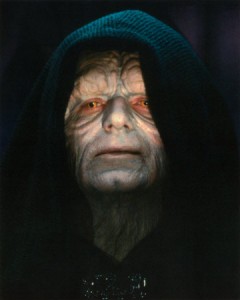 Tony Vinci: I see Star Wars as being a bit different than the others in that what makes it apocalyptically deterministic is the fact of the prequels. Despite the Emperor’s declaration that he “foresees” the future, the original trilogy doesn’t explore that terrain too much, but the moment you have a prequel, the audience knows what is going to happen to this universe and its primary characters. Think Orson Welles’ Othello or Citizen Kane. We begin knowing the end, and all that comes after will never alter the outcome. Though, in the case of Star Wars, what we know is to come is redemption and victory. The other franchises you mention, especially Terminator, seem to work at creating a real sense of doom for the entire world, whereas in Star Wars, the deterministic mood is focused mostly around the Anakin/Vader character or a world that we know is going to be saved. Though, I believe this is ultimately overshadowed by the politics of the prequels, that they darken irreversibly the “triumphs” at the end of Return of the Jedi because we have now seen the old republic, its frailties and hollowness. Surely the New Republic will have many of the same issues.
Tony Vinci: I see Star Wars as being a bit different than the others in that what makes it apocalyptically deterministic is the fact of the prequels. Despite the Emperor’s declaration that he “foresees” the future, the original trilogy doesn’t explore that terrain too much, but the moment you have a prequel, the audience knows what is going to happen to this universe and its primary characters. Think Orson Welles’ Othello or Citizen Kane. We begin knowing the end, and all that comes after will never alter the outcome. Though, in the case of Star Wars, what we know is to come is redemption and victory. The other franchises you mention, especially Terminator, seem to work at creating a real sense of doom for the entire world, whereas in Star Wars, the deterministic mood is focused mostly around the Anakin/Vader character or a world that we know is going to be saved. Though, I believe this is ultimately overshadowed by the politics of the prequels, that they darken irreversibly the “triumphs” at the end of Return of the Jedi because we have now seen the old republic, its frailties and hollowness. Surely the New Republic will have many of the same issues.
TheoFantastique: For me one of the more interesting chapters was by Dan North titled “Kill Binks: Why the World Hated Its First Digital Actor.” CGI actors are now fairly common, and of course Avatar may have helped take digital actors to new heights. Why did so many people hate the digital Jar Jar Binks?
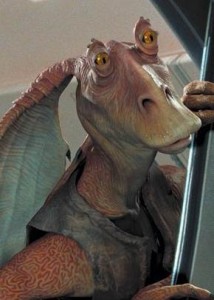 Tony Vinci: There are some serious flaws in the prequels. I think Jar Jar became a scapegoat for all of the other issues that people had with the films but couldn’t necessarily articulate. Beyond that, and the obvious, I think North nails it by arguing that we have anxieties about what watching a digital actor means, and that we projected those onto a character that is not only annoying and potentially racially offensive but represents some difficult questions about what it means to be human.
Tony Vinci: There are some serious flaws in the prequels. I think Jar Jar became a scapegoat for all of the other issues that people had with the films but couldn’t necessarily articulate. Beyond that, and the obvious, I think North nails it by arguing that we have anxieties about what watching a digital actor means, and that we projected those onto a character that is not only annoying and potentially racially offensive but represents some difficult questions about what it means to be human.
Carl Silvio: North does a great job of arguing that much of the hatred directed at the Binks character had less to do with its overall silliness and more to do with a deeper anxiety felt by the audience regarding the replacement of live actors with digital ones and the pervasiveness of CGI technology in Lucas’s film making in general. I find his argument to be pretty convincing. Ultimately, I don’t think that the CGI technology is the problem, or at least it’s not why so many long time Star Wars fans rejected the films. It’s more a matter of how Lucas used the technology to alter the franchise in ways that fans found troubling. The whole “Han shot first” controversy is a good example of how Lucas used digital technology to perform a kind of cultural vandalism on his own creation. Jar Jar Binks’s status as a virtual, digital actor allows him to become an emblem that represents all the ways that Lucas has used the CGI technology in ways that upset his fans.
TheoFantastique: Carl and Tony, thank you again for making time to discuss your book. I hope it helps others explore the significance of Star Wars as a cultural artifact.





2 Responses to “Culture, Identities and Technology in the Star Wars Films”